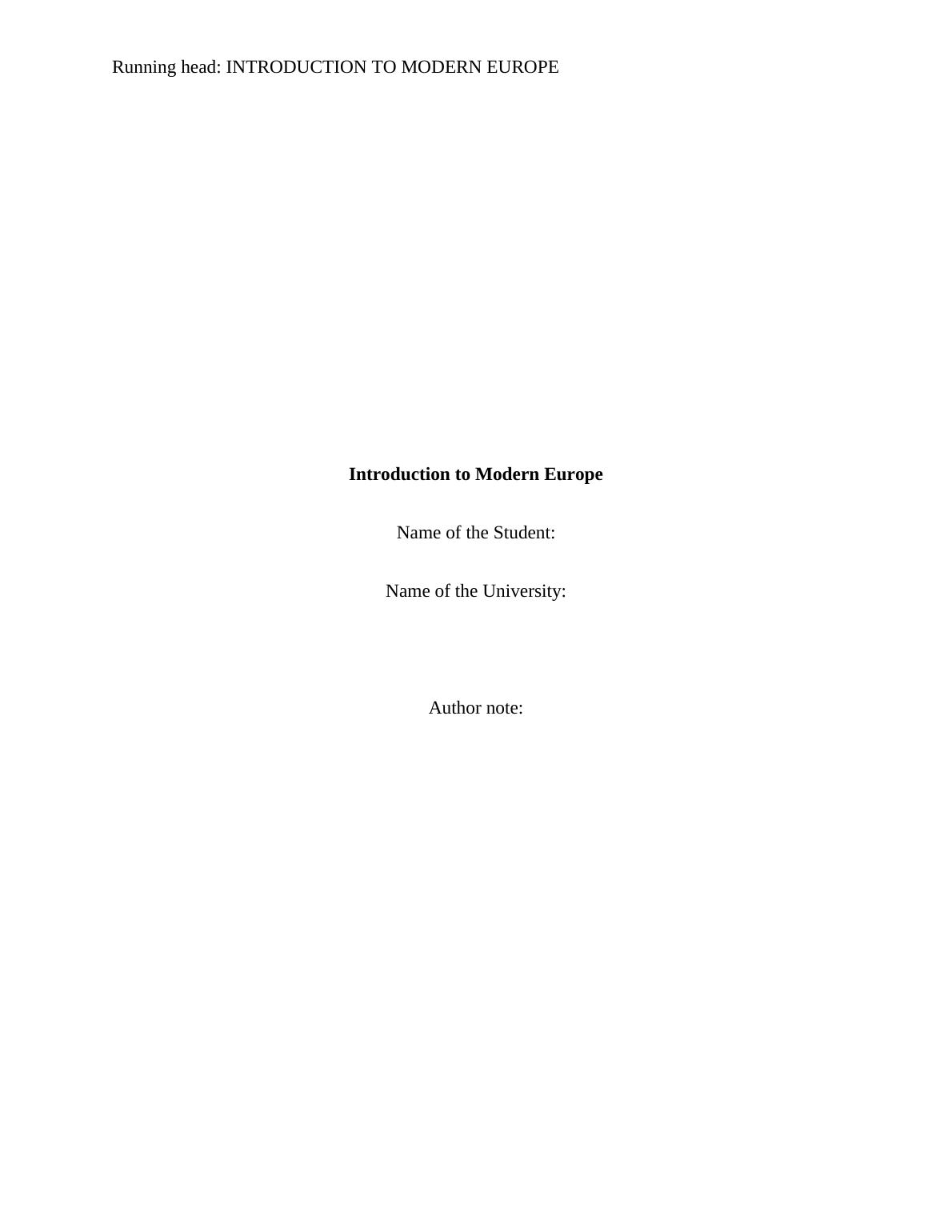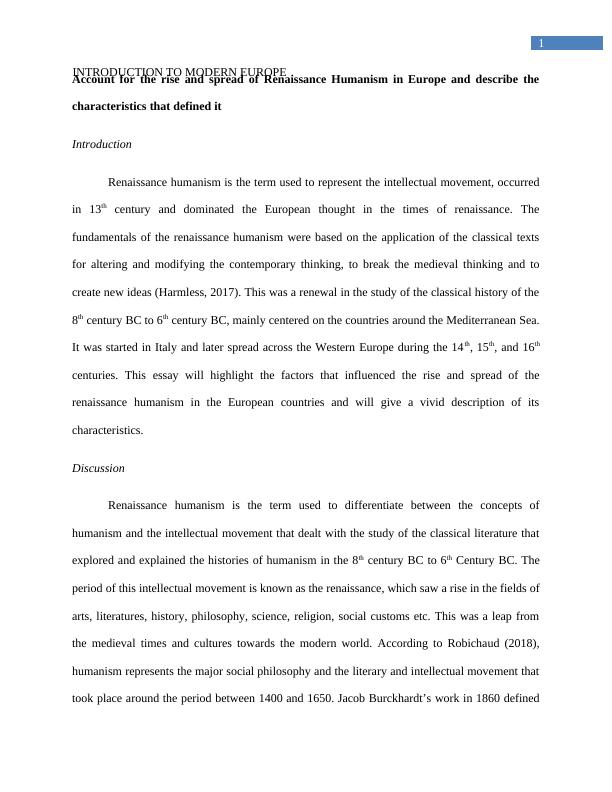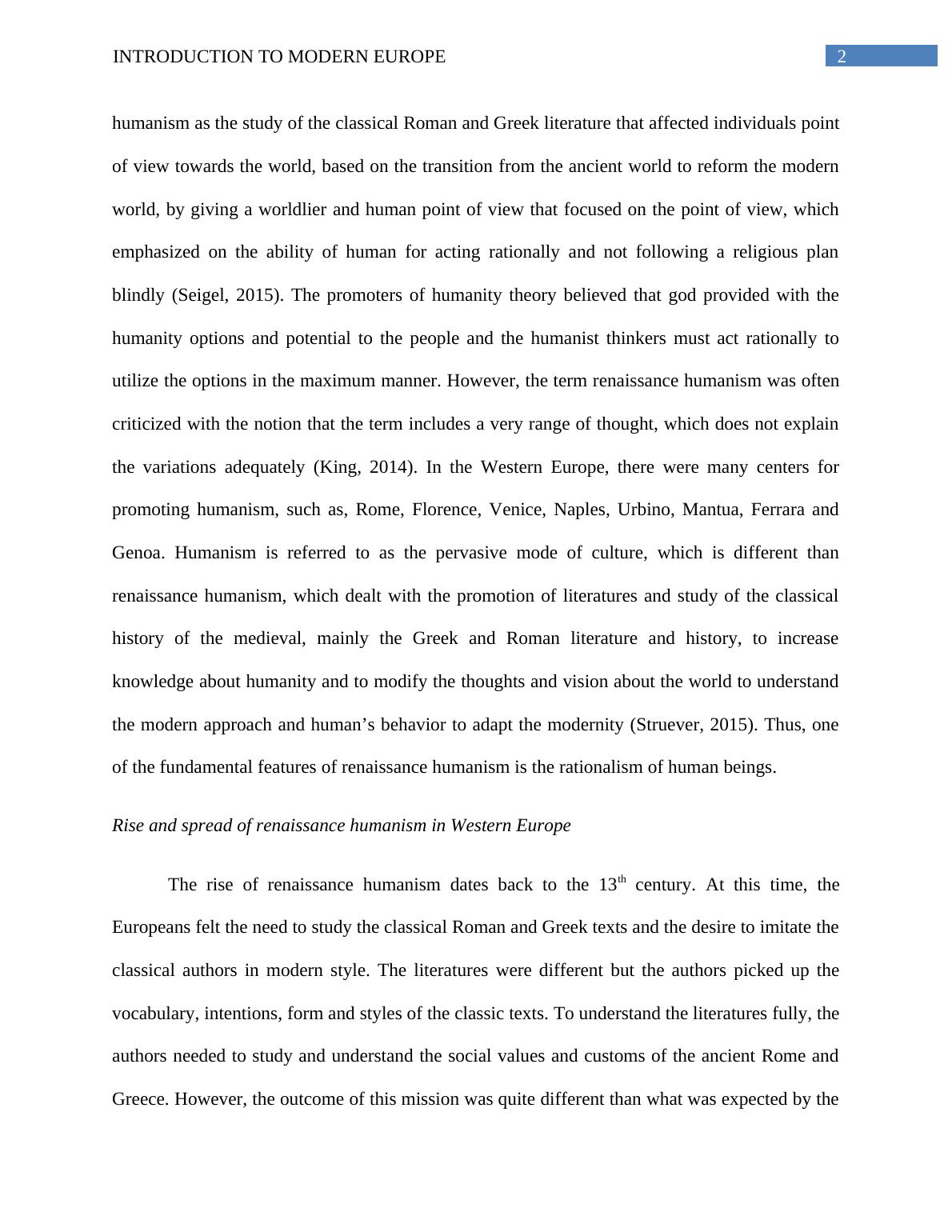Introduction to Modern Europe
Choose one of the provided themes and discuss its relevance and impact on Europe during the specified time period.
10 Pages2805 Words31 Views
Added on 2022-08-24
Introduction to Modern Europe
Choose one of the provided themes and discuss its relevance and impact on Europe during the specified time period.
Added on 2022-08-24
ShareRelated Documents
End of preview
Want to access all the pages? Upload your documents or become a member.
Essay on Tragedy of Faustus and Macbeth for Renaissance
|11
|3791
|75
Neo-classical and Romanticism
|7
|1143
|224
How Renaissance and Reformation strengthened the state
|12
|4115
|121
Assignment on World History and Humanism
|5
|956
|40
Carolingian Renaissance: A Revival of Antique Principles in the Frankish Empire
|10
|3017
|249
The Renaissance Era: Major Social Changes, Humanism, and the Rise of Modern Age in Europe
|4
|630
|362



